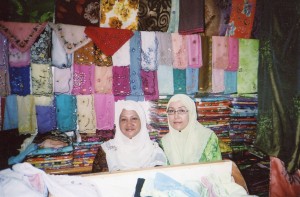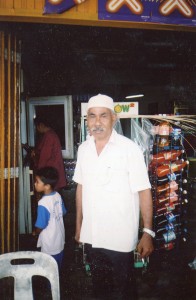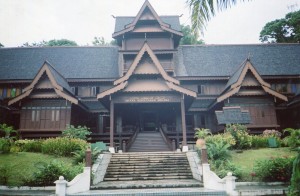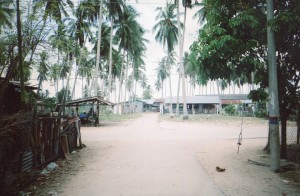The spread of Islam in Southeast Asia has always intrigued me. How could a religion whose basic tenets are so absolute (There is no god but God) have spread in a region where reality is as pluralistic as a big bowl of fish soup?
Yet Indonesia is the world’s most populous Islamic country, and more Muslims live in South Asia than in the Middle East. The message and the monsoon (the title of a beautiful book on Southeast Asian Islamic art) have formed a great meeting of cultures.
How did it happen? Islam took several paths into Southeast Asia.
1. Commerce increased in Southeast Asia in the 14th century. Early Ming China increased its activity in the region, and the demand for spices grew in Europe.
Trading cities grew quickly, including Malacca, Makasar, Grisek, Aceh and Banten. Merchants brought Islam into the towns, and the faith became associated with opulent lifestyles. People in towns throughout the Malay world networked, and Islam became a common field of meanings. The Koran is full of business ethics–the people in the Arabian Peninsula lived by trading, and honesty was a life-or-death matter in that harsh land. Islam allowed people throughout the Malay world to establish trust.
2. Sultans of growing commercial states like Malacca (a replica of its old palace is in the above photo) and Aceh had flashy courts. Sultans adopted the faith, and employed scholars to write about Islam and to help administer Islamic law. Islam became prestigious. Malay society is hierarchical, and elites wow commoners with dazzling rituals and colorful clothes, which show off the mystical powers which people believe keep them on top of the heap. Islam added to the older animistic beliefs to give divine sanction to the rulers’ status.
Some people on the bottom levels were slaves, and they could escape by becoming Muslims. So top-down and bottom-up forces in the social hierarchy converged to establish Islam in the Malay world.
3. Sufi orders brought mystical forms of Islam, which found welcomes in Southeast Asia. People in the region’s lush tropical environment long believed that the world is full of mystical powers–the abundant vegetation, tropical heat and dramatic monsoons seem to confirm it every day. People in harmony with them prosper, and those who aren’t can suddenly lose their health and wealth. Arabs too imagined spiritual power in nature, called baraka (berkat in Malay). Malays who converted to Islam were linked to the berkat of sultans and holy men. Even in modern times many Southeast Asians seek the berkat of holy men at their tombs. Many commoners have believed that Koranic passages have mystical power, and holy men have been paid to chant them.
4. The first three reasons are commonly given by scholars, but Southeast Asian Islam also has to be appreciated from an insider’s point of view. Look closely at the girl in the back of the bus. I was in the back of a car at a red light in Kota Bharu, and I heard this “Hello” and the warmth in her face equalled that of the embracing sun.
Cozy family and kampong (village, or neighborhood in a city) life is basic in Malay society. Adibah Amin wrote a wonderful memoir called As I Was Passing. She wrote, “Happiness is to be in home in your kampong during the fasting month.” Families enjoy the Islamic calendar together. Old men read the Koran, wives cook with chili powder and children play. After the daily fast is over, neighbors share dishes. Daily prayers and big events like weddings and funerals give people reasons to gather and enjoy each other’s company. Hospitality is a religion in the Malay world, and Islam provides many occasions for sharing warmth.
As a blogger, I’m forced to create categories, so I have Middle East, Southeast Asia, and other stuff. Many academic departments also slice the world into different cultures. But cultures have many points of contact–they can share many common idioms. The world is full of great fusions–Islam in China is another. The world is more like a field of stars shining on each other than a map of separate places. Malaysia and Indonesia can give you this feeling as well as any other place on the planet.






Comments on this entry are closed.